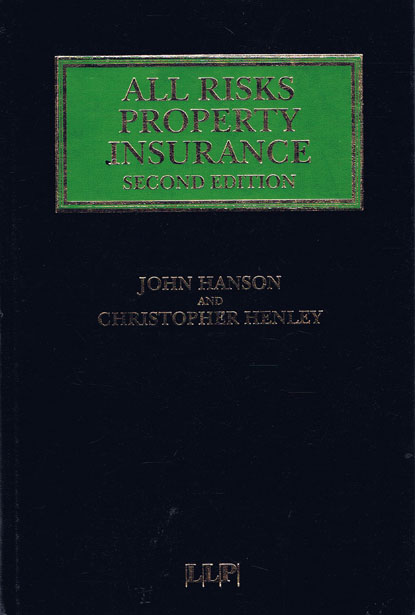
The first edition of this book was the first major work to provide a comprehensive practical legal analysis of All Risks Property Insurance (ARPI). This type of property cover, developed over the last 30 years, now forms the basis of most large scale commercial property programmes. The book was well received and won the most prestigious British Insurance Law Assurance Book Prize soon after publication.
It was the practical nature of the book that attracted the BILA book prize judges. The second edition continues and expands upon the same theme, namely to express the law in an accurate yet easy to read format. Again the text is peppered with practical examples of problems and opinions are expressed as to how certain parts of these policies can be improved.
To set the scene, an overview of general insurance principles is provided but specifically the type of policy. For example, when dealing with the duty of utmost good faith, the text specifically identifies those matters which might be considered to be material facts when a property risk is placed. This chapter together with others have been re-written. In particular, there has been a good deal of case development in the area of fraud and the continuing duty of good faith. Certain additional exclusions and conditions are added to the text. For example, the Year 2000 issue is considered.
Chris Lemar of PricewaterhouseCoopers has contributed to the chapter on business interruption, adding practical examples from his experience in this area. Most multi-nationals would expect their property programmes to be based upon ARPI. These property programmes usually have a global scope and they are considered at some length in an expanded chapter on global programmes.
As before, the book draws examples from all common law jurisdictions including Canada, the US and Australasia. Although many of these authorities are not binding upon English Courts it draws together jurisprudence on property policies and many of these examples are relevant to specified perils policies as well as ARPI. As such the book should appeal not only to a UK readership, but also to other common law jurisdictions.